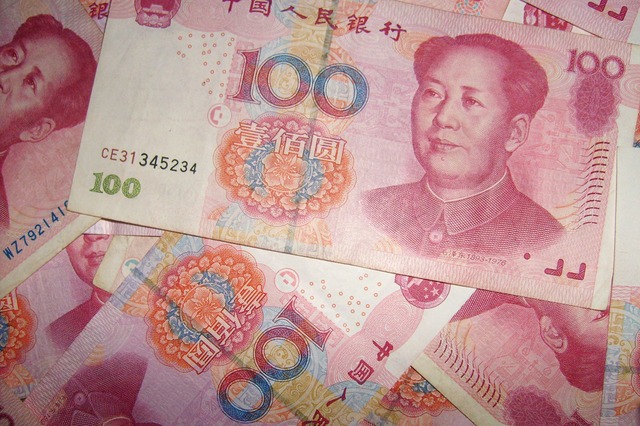From Bloomberg: “China will allow trading in forwards and swaps between the yuan and three more currencies in a bid to reduce foreign-exchange risks amid increased volatility in emerging markets.
The China Foreign Exchange Trade System will begin such contracts with… Russia’s ruble…from Dec. 29… That will extend the yuan’s swaps trading to 11 currencies on the interbank foreign-exchange market. The new contracts come amid Malaysia and Russia are China’s eighth and ninth biggest trading partners.”
Currency Transactions without Dollars between Russia and China increased 2400% in the 4 months between July and October 2014
Efforts by China to increase the international use of the yuan,
as the world’s second-largest economy promotes
it as an alternative to the U.S. dollar for
global trade and finance.
“We’re moving away from the diktat of the market that denominates all the commercial oil flows in U.S. dollars,” Mr. Putin said. Russian companies are increasingly shifting to direct renminbi-ruble trading to settle their imports and exports with Asia.
Turnover in direct transactions in the two currencies soared to $1.2 billion over the course of October, from $307 million in September and as low as $52 million in July, according to data available on the website of the China Foreign Exchange Trading System, the trading division of China’s central bank.
“Volumes are picking up as both countries aren’t against using their own currencies instead of the dollar for mutual transactions. I expect the turnover to grow,” said Evgeny Gavrilenkov, a currency strategist at Sberbank .
The Moscow Exchange reported a record daily turnover of 1.5 billion yuan ($245 million) against the ruble on October 16.
Ruble-yuan trading was launched by the Moscow Exchange in 2010 but failed to gain significant interest from Russian companies until October, just after the U.S. and Europe widened their sanctions against the country.
To further strengthen cooperation, the exchange signed an agreement with the Bank of China in October and is currently negotiating with Chinese authorities the launch of new services to investors on the Chinese and Russian markets.
“Sanctions on Russia will undoubtedly encourage ties with other countries, particularly China,” said Andy Seaman, fund manager at Stratton Street Capital LLP which manages a renminbi bond fund.
He added,
“The Chinese currency is already likely to be the third most actively traded currency in the world by the end of 2015
and greater trade links between Russia and China
can only accelerate the internationalization
of the renminbi.”
China and Russia will announce a joint currency, one backed by both China’s “surprising” gold reserves and Russia’s commodity hoard.

